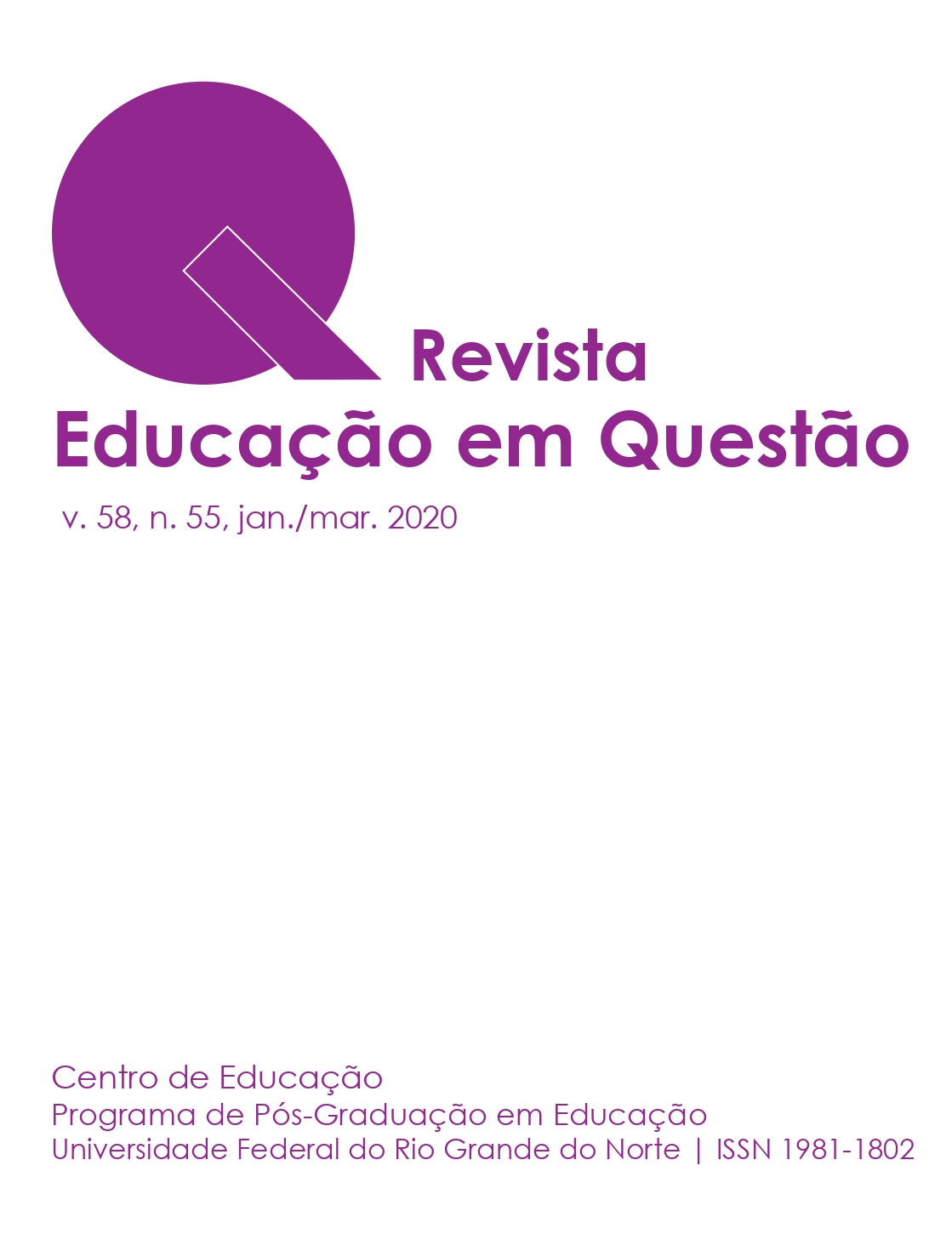The purposes of the Brazilian education systems
DOI:
https://doi.org/10.21680/1981-1802.2020v58n55ID19288Keywords:
Purposes of education. Development of the person. Citizenship. Work.Abstract
This paper analyses the aims of school education. The electoral debates exposed, in the tensions of rhetoric, a discrepant set of opinions about the purposes and responsibilities of school education. The speeches of candidates, educators and researchers and the participation of different social groups in discussions about education brought to the public space the importance of school education for the building of the political project of the Brazilian State. This research synthetizes these manifestations and makes a bibliographical analysis of the purposes of education to explain what are in-depth the fundamental aims of Basic Education of the national education systems. The article analyzes the three prospective goals of education defined in the Brazilian Constitution: the full development of the person, the preparation for the exercise of citizenship and the qualification for work. These are permanent and always current issues in national education systems, historically essential to be persecuted to build a democratic State and society that guarantees universal Basic Education for all Brazilians.
Downloads
References
AUDIGIER, François. Éducation `a... et préparations à la vie. In: AUDIGIER, François; SGARD, Anne; TUTIAUX-GUILLON, Nicole (Org.). Sciences de la nature et de la societé dans une école en mutation. Fragmentations, recompositions et nouvelles alliances?. Louvain-la-Neuve: De Boeck, 2015.
AUDIGIER, François. L’esprit critique et enseignement de l’histoire: quelles pratiques pour quelles fins? In: ÉTIER, Marc-André; LEFRANÇOIS, David; AUDIGER, François (Org.). Pensée critique, enseignement de l’histoire et de la citoyenneté. Louvain-la Neuve: De Boeck, 2018.
AUDIGIER, François; FILLION, Laurent. Éduquer à la citoyenneté. Amiens: CRDP de l’ Académie d’ Amiens, 2012.
BRASIL. [Constituição (1988). Constituição da República Federativa do Brasil. Brasília: Supremo Tribunal Federal, Secretaria de Documentação, 2018. (Atualizada até a EC n. 99/2017).
BRASIL. Decreto Nº 10.004, de 5 de setembro de2019. Institui o Programa Nacional das Escolas Cívico-Militares. Diário Oficial [da] União, Poder Executivo, Brasília, DF, 6 de setembro de 2019. seção 1, p. 1-3.
COMMISSION EUROPÉENNE. L’éducation à la citoyenneté à l’école en Europe-2017. Rapport Eurydice. Luxembourg: Office des publications da l’ Union européenne. Disponível em: http://publications.europa.eu/resource/cellar/6b50c5b0-d651-11e7-a506-01aa75ed71a1.0003.01/DOC_1. Acesso em: 5 set. 2019.
FRANCE STRATÉGIE. Quelle éducation pour quelle école. Disponível em: www.strategie.gouv.fr/.2016. Acesso: 2 set.2019.
OCDE. Les grandes mutations que transforment l’éducation 2019. Paris: Éditions OCDE,2019. Disponível em: http//dx.doi.org/10.1787/trends_edu-2019-fr. Acesso em: 20 ago. 2019.
RAVEZ, Claire. Regards sur la citoyenneté à l’école. Dossier de la veille de l’IFÉ,n.125, juin. Lyon: ENS de Lyon, 1918. Disponível em:http://veille-et-analyses.ens-lyon.fr/DA/detailsDossier.php?parent=accueil&dossier=125&lang=fr. Acesso em: 2 set.2019.
SHNAPPER, Dominique. Communauté des citoyens. Sur l’ídée moderne de nations. Paris: Gallimard, 1994.
SHNAPPER, Dominique;BACHELIER, Christian. Qu’est-ce que la citoyenneté’? Paris: Gallimard, 2000.
Downloads
Published
How to Cite
Issue
Section
License
The Journal Education in Question shall retain the copyright in all articles that it publishes.
The authors and co-authors of articles and book reviews, published in the Journal Education in Question, shall wait for at least 1 (one) year before they are allowed to submit new works for publication.






